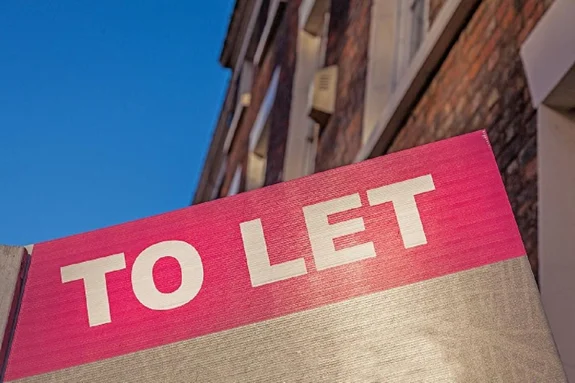Do Secured Loans do Credit Checks? Unveiling The Truth
As individuals explore financial avenues to meet their needs, questions often arise about the intricacies of the lending process. One common question is, “Do secured loans do credit checks?” In this blog post, we will unravel the truth behind credit checks for secured loans, shedding light on how this vital aspect of the lending process impacts borrowers.
Understanding Credit Checks for Secured Loans
The nature of secured loans
Secured loans are a category of loans where borrowers provide collateral, such as real estate or valuable assets, to secure the loan. The collateral acts as a safety net for lenders, reducing the risk associated with the loan.
Collateral vs. credit check
While collateral is a key factor in secured loans, it doesn’t eliminate the need for a credit check. Lenders use credit checks to assess the borrower’s creditworthiness, financial history, and ability to repay the loan.
The collateral provides security for the lender, but credit checks offer additional insight into the borrower’s overall financial health.
Secured loans and credit scores
Credit checks for secured loans may not be as stringent as those for unsecured loans. The presence of collateral allows lenders to be more flexible, making secured loans accessible to individuals with varying credit profiles.
However, a positive credit history can still positively impact the terms and conditions of the loan, influencing interest rates and repayment terms.
Loan amount and terms
The results of a credit check can influence the loan amount a borrower is eligible for and the terms of the loan. Individuals with higher credit scores may have access to larger loan amounts and more favourable interest rates.
Impact on approval
While a credit check is part of the evaluation process, having a less-than-perfect credit score doesn’t necessarily mean automatic rejection. Secured loans are designed to provide a pathway for individuals with varying credit histories to access financing by leveraging their collateral.
Alternative lenders and credit checks
Depending on the lender, the stringency of credit checks can vary. Traditional banks may have more rigid credit requirements, while alternative lenders, including online platforms and credit unions, may offer more flexibility.
In conclusion
In conclusion, secured loans do involve credit checks, but the impact of the credit check on the loan approval process is different compared to unsecured loans. The presence of collateral provides a layer of security for lenders, allowing for greater flexibility in lending decisions.
As borrowers navigate the world of secured loans, it’s essential to be aware of the relationship between credit checks, collateral, and loan terms. Seeking guidance from financial advisors and exploring options with lenders who specialise in secured loans can help individuals make informed decisions aligned with their financial goals and credit profiles.
Are Secured Loans Hard to Get?
When it comes to accessing financing options, the question often arises: “Are secured loans hard to get?” Secured loans, backed by collateral, have long been regarded as a reliable financial tool for individuals and businesses alike. In this blog post, we’ll delve into the dynamics of secured loans, dispel myths, and shed light on the factors that determine their accessibility.
Understanding Secured Loans:
Collateral as a key factor
Secured loans require collateral, which can be in the form of real estate, vehicles, or other valuable assets. This collateral serves as security for the lender, reducing the risk associated with the loan.
Contrary to the belief that securing collateral makes the process harder, it can actually enhance the likelihood of loan approval by providing a tangible asset that mitigates the lender’s risk.
Credit history matters
While collateral plays a significant role, credit history is still a key consideration for lenders. A positive credit history can strengthen your loan application, making it more likely for lenders to offer favourable terms.
However, secured loans can be more accessible for individuals with less-than-perfect credit compared to unsecured loans, as the collateral provides a level of assurance for the lender.
Loan-to-value (LTV) ratio
Lenders often assess the loan-to-value ratio, which compares the loan amount to the appraised value of the collateral. A lower LTV ratio can increase the chances of loan approval.
Understanding the acceptable LTV ratio for a given loan can help borrowers align their expectations and choose collateral that maximises their borrowing capacity.
Purpose of the loan
The purpose of the loan can influence its accessibility. Lenders may be more willing to approve secured loans for specific purposes, such as home renovations or business investments, where the intended use aligns with the nature of the collateral.
Shop around for lenders.
Different lenders have varying criteria and policies regarding secured loans. Shopping around and exploring options from banks, credit unions, and online lenders can help you find the most favourable terms based on your financial profile and collateral.
Professional guidance
Seeking advice from financial experts or loan advisors can provide valuable insights into the requirements and expectations of secured loans. They can help you navigate the application process and choose the most suitable collateral for your needs.
In conclusion
In conclusion, the accessibility of secured loans is influenced by various factors, and the perception that they are inherently hard to obtain may not hold true for everyone. With collateral providing a level of security and risk mitigation, secured loans can be a viable and accessible option for individuals and businesses looking to secure financing.
As with any financial decision, it’s crucial to conduct thorough research, assess your financial situation, and explore options that align with your goals. By understanding the dynamics of secured loans, borrowers can make informed choices that pave the way for financial success and stability.
Secured and Unsecured Debt Consolidation Loans: Which is better?
A competitive debt consolidation loan has the potential to save an individual with multiple debts time, money, and hassle. Particularly if their existing debts have elevated rates of interest and excessive borrowing costs, consolidation can represent a real lifeline.
But which of the two main options available, secured and unsecured consolidation loans, is the better choice? More importantly, in what circumstances would it be advisable to consider using a consolidation loan to repay debt?
What kinds of debt can be consolidated?
Consolidation loans can be used to pay off almost all types of loans and outgoings.
- Overdrafts from banks
- Outstanding credit card debts
- Arrears on personal loans
- Payday loan balances
- Store cards and credit facilities
Where multiple debts are making it difficult to keep up with your monthly repayments, a consolidation loan can simplify your financial life and reduce your overall outgoings.
Do debt consolidation loans result in negative credit?
The answer depends entirely on the nature of the credit facility you take out. There are some specialist consolidation loans that can adversely impact the credit score of the applicant. Simply by applying for a debt consolidation loan, your credit history may be impacted.
However, there are also various specialist-secured consolidation loans that have no impact whatsoever on the applicant’s credit history. It is therefore important to carefully discuss the various options available with your broker before submitting your application.
How do secured debt consolidation loans work?
A secured debt consolidation loan works similarly to a mortgage, in that it is secured against your home or other qualifying assets. As the loan is secured, it is considered a lower-risk facility on the part of the lender, ultimately resulting in more competitive rates of interest and flexible repayment terms.
In addition, secured debt consolidation loans are typically available in much higher sums than unsecured consolidation loans.
The major risk attached to a secured loan is that you will forfeit your property if you fail to keep up with your agreed repayments.
How do unsecured debt consolidation loans work?
An unsecured debt consolidation loan is issued purely on the basis of merit, with no security required. This means credit checks are done that include your earnings, employment status, and general financial position.
The benefit of an unsecured loan is that you do not need security, nor are you at risk of losing your home if you fall behind on your repayments.
However, unsecured debt consolidation loans are considered higher risk for the lender, therefore they are not typically issued in sums of more than £15,000 and may have less competitive rates of interest.
Which debt consolidation loan is best?
Choosing the most appropriate debt consolidation product means first discussing all available options with your broker. Suitability will be determined by how much you need to borrow, your preferred repayment period, your financial status, your credit history, and whether you have qualifying assets available.
After which, a complete market comparison can be performed on your behalf in order to ensure you get the best possible deal.
For more information on any of the above or to discuss your requirements in more detail, contact a member of the team at UK Property Finance today.
When is a Secured Loan a Good Option?
An unsecured loan can be a versatile and conveniently accessible financial tool for short-term borrowing requirements; however, unsecured loans are typically only available for relatively small sums and are repaid using regular monthly payments over an agreed-upon timescale.
With secured lending, significantly greater sums are often available for repayment over a much longer period of time. The most common example of a secured loan is a mortgage, wherein the applicant borrows to buy a home and repays the balance over 10 to 35 years.
Secured lending is the provision of security (aka collateral) by the applicant, which is used as an insurance policy to repay the loan. In the event that the loan is not repaid in full, the lender has the legal right to take ownership of the security, sell it, and use the proceeds to recoup their losses.
A secured loan therefore carries the risk of forfeiting assets but can nonetheless be beneficial in a variety of ways.
What are the benefits of secured lending?
The main benefits of secured lending are the option of borrowing a relatively large sum of money, and they are available for most legal purposes. If sufficient equity is available in your property to cover the loan amount should the loan default, you have a high chance of success.
Even poor credit and a lack of income (bridging loans only) may still be considered.
In addition, the reported average completion time for a secured loan at the end of 2020 was just 13 days. Repayment options are also flexible, allowing borrowers to repay the loan over their preferred period, dependent on affordability, anything from a few months (for bridging loans) to 40 years.
With competition among UK lenders at an all-time high, typical interest rates for secured loans are at the most competitive that they have ever been.
When is a secured loan the right option?
As for when a secured loan represents the ideal option, there are technically no legal limitations to where and how the funds can be used. Therefore, a secured loan could be the perfect option in any instance where the following is required:
Significant loan amounts: Secured lenders offer loans starting from £10,000 upwards, making secured loans ideal when you need to borrow a significant sum of money for a major purchase, project, or investment.
Long-term repayment: Being able to spread out the repayments on a secured loan over several years or decades provides the borrower with access to affordable monthly repayments.
Poor credit borrowing: As secured loans are typically issued primarily on the basis of security, it is possible to qualify for a competitive deal with a poor credit history or no credit history.
Business loans: As the vast majority of businesses have a variety of valuable assets at their disposal, secured loans can be used as competitive and versatile business loans for a long list of purposes.
If you can prove that you can comfortably afford the repayments on your loan, secured lending could enable you to access the funds you need at a competitive rate of interest.
Secured Second Charge Loans for Home Improvement Projects
Homeowners across the UK routinely turn to banks and specialist lenders for help with major home improvement projects.
One of the most flexible and versatile products available is a secured second-charge home improvement loan, which can cover the costs of most types of major home improvements, renovations, and extensions.
What is a secured second-charge home improvement loan?
As the name suggests, a secured second-charge home improvement loan is a specialist financial product provided specifically for home improvement purposes. As a secured loan, the funds issued are taken out against an asset of suitable value, in this instance, the home of the borrower.
The amount you can borrow will be determined by how much equity you have in your home, i.e., how much of your mortgage you have so far paid off. A loan is issued with the property used as security, after which the money is repaid over a series of monthly payments at an agreed rate of interest.
A secured second-charge home improvement loan can be issued as an extension on your existing mortgage by your current lender. Alternatively, it can be taken out as a separate loan entirely with the lender of your choosing.
How is an unsecured home improvement loan different?
Unsecured home improvement loans are those that are issued based on the applicant’s strong financial position and credit history. No security (i.e., property or assets) is required, as eligibility is determined purely by way of merit.
While unsecured lending may eliminate the risk of forfeiting your assets in the event of non-payment, it nonetheless has its limitations. Unsecured loans are considered higher risk on the part of the lender, which means you will not be able to borrow as much and may face much higher overall borrowing costs.
Qualifying for an unsecured home improvement loan is also impossible in the absence of an excellent credit history and proof of a strong current financial status.
How much can I borrow on a home improvement loan?
There are technically no limitations to how much you can borrow, as the maximum loan amount will be based on the equity available in your property. Secured loans typically start at around £25,000 and are repaid over the course of an agreed number of years.
Your financial status and credit history may also be considered by the lender when determining how much you can borrow.
What can I use a home improvement loan for?
Most home improvement loans can be used for any major property improvement or extension project. Few lenders impose formal restrictions on how the funds can be allocated, so you are free to use the loan for any purpose you wish.
- Some of the most common uses for secured home improvement loans are as follows:
- Extensions to create additional living spaces
- Landscaping and major garden renovations.
- New kitchen and bathroom installations.
- Installation of conservatories or outdoor summer houses.
- Swimming pool planning and construction
By spreading the costs of the project over several years, the major home improvement project you have been dreaming about could be more affordable than you think.
For more information on any of the above or to discuss your requirements in more detail, contact a member of the team at UK Property Finance today.
Is Consolidating Debts with a Secured Loan a Good Idea?
On one hand, it is true to say that taking on any form of debt while already struggling with your monthly outgoings is not a good idea. Attempting to solve debt by taking on more debt is usually counterproductive, though there is one exception to the rule.
Debt consolidation involves using one larger loan to pay off multiple debts, leaving the individual in question with just one monthly repayment that they can afford. Replacing numerous debts with a single loan at a competitive rate of interest can also significantly reduce the individual’s overall debt level and outgoings; however, consolidating debts with a secured loan is not without its risks, all of which should be discussed in full with an established broker before applying.
Taking out a secured loan to consolidate debts effectively means converting a series of unsecured debts into one larger secured debt. This immediately brings the benefits and risks associated with secured borrowing into the equation, such as the following:
Benefits
- A secured loan can often be provided at a significantly lower rate of interest, as they are considered lower-risk products on the part of the lender.
- Taking out a secured loan provides the opportunity to repay the balance over 5, 10, 15, or even longer, allowing for comprehensively affordable monthly repayments.
- Specialist-secured loans for debt consolidation do not adversely impact the credit history of the applicant.
- Provided you have sufficient security (assets) available to cover the total sum of the loan, you have a strong possibility of success with your application.
Risks
- Secured debt consolidation loans are typically issued against the home of the applicant, which may subsequently be repossessed if the loan is not repaid as agreed.
- Variable interest rates are occasionally used on longer-term secured loans, which means monthly outgoings could increase (or decrease) in the future.
- You cannot qualify for a secured debt consolidation loan of any kind if you have no qualifying assets to secure the loan against.
How can I ensure I get the best possible deal?
Before applying for a secured debt consolidation loan, it is essential to ask yourself three important questions:
- Will the loan clear all of my debts and, therefore, put me in a much better financial position?
- Can I comfortably afford the repayments on the loan without any issues?
- Am I sure I will be able to cope if the interest rate on my loan increases in the future?
If, after considering the pros and cons, you decide to go ahead with a debt consolidation loan application, ensuring you get the best possible deal means working with an established independent broker.
Your broker will conduct a whole-of-market comparison on your behalf, incorporating countless specialist lenders that do not work directly with the public. This comparison will be provided free of charge, with no fees or commissions payable for the services offered.
For more information on any of the above or to discuss your requirements in more detail, contact a member of the team at UK Property Finance today.
Secured Second Charge Lending Sector Remains Buoyant During Second Lockdown
Secured second charge lending activity has maintained its momentum across much of the UK, despite difficult conditions during the recent lockdown. Published data suggests that in October, monthly volumes increased a further £19 million to reach £71 million. Total secured loan completions were also up more than 30% from the month before, reaching 1,816 loans completed.
Loan completion times were also found to have improved between September and October, averaging around 11 days compared to the previous 12 days.
Further growth is predicted
The Finance & Leasing Association (FLA) reported a major spike in second-charge in August, fuelled primarily by pent-up demand being released on the sector following the first national lockdown.
Going forward, experts believe that activity will double by the end of the current quarter.
The message from the secured loan industry is very clear: It is business as usual in lockdown 2, with no significant changes or restrictions to criteria announced following the PM’s announcement of a second lockdown.
When the coronavirus hit in March, lending figures dropped over 80%, but this time around it is very different as October showed the biggest monthly growth of 2020.
There is now no restriction on physical valuations, and for over a decade, the industry has offered a huge range of products available using Home Track or similar desktop valuation models.
The optimism stems from several lenders announcing securitization in recent weeks. First, we saw Pepper Money, owned by Optimum Credit, announce the first securitization (specifically for second charges) since the start of the pandemic to the tune of £277 million, and a huge easing of criteria followed to ensure a return to pre-COVID-19 lending levels in the coming months.
West One parent company a Specialist Finance also announced their first-ever securitization of £267 million to be split across their first and second-charge products.
Secured 2nd Charge Mortgage Loan Assists Self-Employed Client’s Purchase of First Buy to Let Property Investment
The UK’s buy-to-let market continues to prove a goldmine for those making the right moves at the right time. UK Property Finance recently helped a client from London collect the keys to his first buy-to-let investment property purchase.
The client had significant equity tied up in his residential home, which could be released. He also had a large number of free funds, which, when combined, created a sizeable deposit, giving our client the opportunity to use products with the best possible interest rates. To access the equity tied up in his own home, we suggested a second-charge mortgage loan secured against the client’s home.
We chose a 2nd charge mortgage loan instead of a full remortgage as UK Property Finance has access to second-charge mortgage lenders who will allow loan sizes of 6 or 7 times an applicant’s income to be raised at highly competitive rates of interest.
This meant that our client could raise a larger deposit via a second-charge mortgage loan than if he had fully remortgaged. Additionally, despite being self-employed, our client was able to verify his income using his 1-year SA302 tax returns. With our contacts, this made it quick and easy to arrange the loan needed to purchase the investment property, and the application for £280,000 was approved and the underwriting process was completed in less than five working days.
During the process, the client admitted that he was rejected by three lenders beforehand, simply due to his self-employed status. He was delighted with the result we achieved and left the team at UK Property Finance a glowing Trustpilot review for giving him the opportunity to access the buy-to-let property ladder for the first time. Work out the costs of a mortgage using our UK mortgage calculator.








